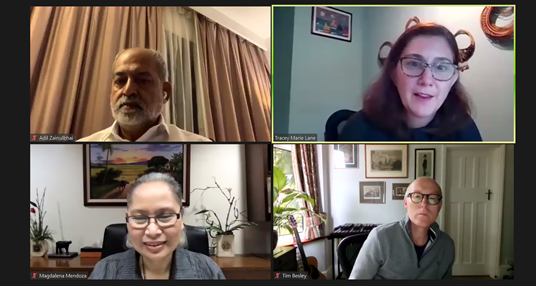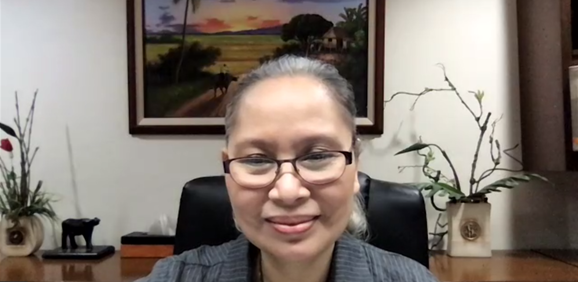
Times of crisis have emphasized the importance of the role of the public sector. Public sector employment and compensation are two fundamental government production functions that determine overall public sector productivity and service. With the government employing the majority of the workforce in most economies, it shapes the country’s fiscal sustainability, productivity, and labor market policies and standards.
Quality data are most useful to evaluate the performance of the public sector and formulate evidence-based reforms. On September 30, 2021, the World Bank launched the Worldwide Bureaucracy Indicators (WWBI) that covers 53 million high-quality microdata, 192 indicators, across 202 countries on demographic, size, compensation, and wage bill of the public sector to aid policy-making. Senior Public Sector Specialist of the World Bank, Mr. Zahid Hasnain, described the WWBI, its findings and potential applications. One of the WWBI findings across the globe determining that the public sector is the largest employer for most countries, especially for essential workers. He also shared how public sector workers have an average wage premium of 7.3% more than similar formal private-sector workers, however, this varies across gender, educational attainment, occupation, and industry. The public sector employs more women than the private sector with a concentration in select industries such as healthcare, education, and public administration. Women are also generally provided a higher wage premium in the public sector. This reflects a more gender-inclusive environment for women in the government although there is still a long way to go.
During the launch, Mari E. Pangetsu, World Bank Managing Director for Development Policy and Partnerships, expressed her excitement over the first unique cross-national dataset developed by World Bank Bureaucracy Lab to better understand the footprint of the public sector workforce.
Senior Vice President Magdalena L. Mendoza of the Development Academy of the Philippines applauded the WWBI for providing an impressive wealth of analytics to better understand public sector employment and compensation. This database of indicators enables productivity assessment using the WWBI proxy indicators to create data-driven policies and reforms in the civil service. She expounded how information on the demographic, psychographic, and behavioral attributes of public servants can enable the government to understand internal and external motivations for work discipline so that it develops a more effective incentives system and more responsive civil service reforms to improve performance and maximize productivity. According to SVP Mendoza, the Philippine civil service has gone through reforms such as rationalization, salary standardization, result-based performance management, performance-based incentives, and the dataset may be useful to evaluate if these reforms have resulted in productivity gains.

Other members of the panel shared their ideas on the potential of the WWBI in its application, growth, and expansion relative to pursuing public sector productivity. Tim Besley, W. Arthur Lewis Professor of Development Economics at London School of Economics, raised the value of looking into the bureaucracy as a whole system and not just through pockets of excellence whereby integrating different components of civil service can make waves of influence through global best practices. He also suggested collecting granular personnel data over career lifetimes to identify determinants in career progression, but a fundamental step needed today is to first work on proper codification and standardization of data to support analysis.
Ghana Head of Civil Service, Nana Kwasi Agyekum Dwamena, relayed how they put up systems in place to improve monitoring of human resource data analytics to develop more data-informed reforms in the public administration. Adil Zainulbhai, Chair of the Capacity Building Commission and the Chairman of the Quality Council of India, described how they have developed an Integrated Government Online Training (iGOT) Platform to provide access to learning materials from over 700 training institutions to all levels of civil servants. He continued to share their pursuit for more innovative ways in delivering these capability-building solutions amidst the heterogeneity of its 30 million public servants. He brings light to using data on what level of capability people are in, what they need to learn, what are they interested in, and letting the ecosystem work together to achieve the goal.
SVP Mendoza raised the value of the WWBI in relation to the work of DAP as the Center of Excellence on Public Sector Productivity and look forward to collaborating with the Bureaucracy Lab. In closing, Indermit S. Gill, Vice President of World Bank Equitable Growth and Finance Institutions, expressed gratitude to the Bureaucracy Lab team that has worked hard in the extensive process of data collection and its emphasis on delivering it through a transparent process. He thanked all speakers, panel members, and the audience for their active participation in the launch and looks forward to putting these datasets into the application for more innovative and responsive civil service reforms.
